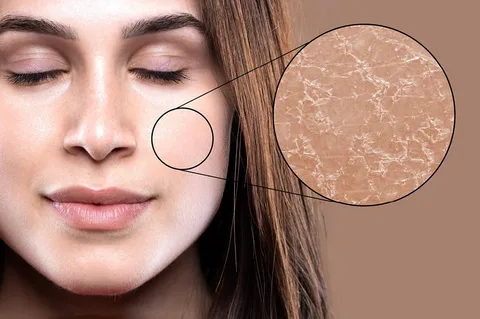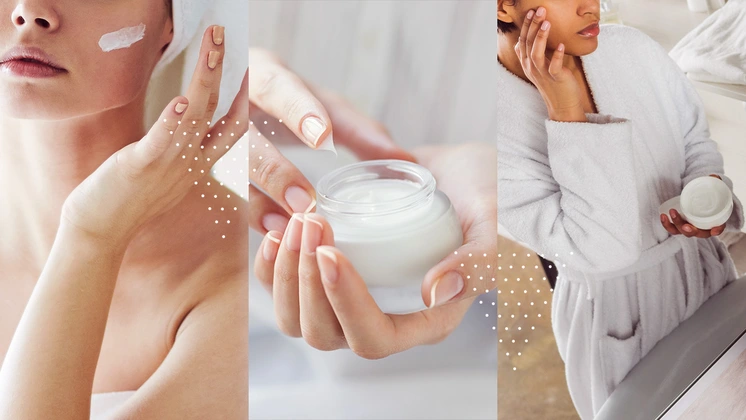Winter can be a magical time of year with the chilly air, cozy vibes, and festive activities. However, it can also bring a major challenge dry skin.
As temperatures drop and humidity levels decrease, our skin’s natural moisture can evaporate, leaving it dry, flaky, and sometimes even cracked or irritated. But don’t worry! With the right care, you can keep your skin hydrated and glowing all season long.
In this guide, we’ll walk you through everything you need to know about preventing and treating dry skin in the winter, from choosing the right products to simple lifestyle changes that will make all the difference. Let’s dive in!
What Causes Dry Skin in Winter?
Understanding the causes of dry skin in winter is essential to addressing the issue effectively. The most common culprits are:
Low Humidity
During the colder months, humidity levels in the air drop significantly. This makes it harder for your skin to retain moisture, leading to dryness and irritation.
Cold Air
Cold air itself can strip moisture from the skin. The combination of cold outdoor temperatures and heating systems indoors creates a harsh environment for your skin, leaving it feeling tight and parched.
Hot Showers and Baths
As tempting as it is to take long, hot showers during winter, they can damage your skin’s natural moisture barrier. Hot water can cause the skin to lose its natural oils, leading to dryness and irritation.
Winter Winds
Cold winds can be especially damaging to the skin, particularly to areas of your face and hands. They increase the evaporation of moisture, leaving skin more susceptible to cracking and flaking.
How to Prevent Dry Skin in Winter
Moisturize Regularly
The most effective way to prevent dry skin during winter is to keep your skin well moisturized. This helps to restore and maintain the skin’s natural moisture barrier, preventing dryness and irritation.
- Use a thick, creamy moisturizer: Look for products with occlusive agents like petrolatum, dimethicone, or shea butter. These ingredients create a protective barrier on the skin that helps to lock in moisture.
- Moisturize immediately after bathing: Apply moisturizer while your skin is still slightly damp to help seal in moisture. Don’t wait until your skin feels dry—this can make the problem worse.
Choose the Right Cleanser
During the winter, it’s important to use a gentle, hydrating cleanser. Harsh cleansers can strip your skin of its natural oils, leaving it more vulnerable to dryness.
- Look for sulfate free products: Sulfates can dry out the skin, so opt for a cream based cleanser or one with glycerin to help keep your skin hydrated.
- Avoid bar soaps: Traditional bar soaps are often alkaline and can dry out your skin, especially during winter.
Humidify Your Home
Indoor heating during winter can reduce the humidity in your home, leading to dry air that dries out your skin. A humidifier can help replenish moisture in the air, maintaining a hydrating environment for your skin.
- Place a humidifier in the rooms where you spend the most time, such as your bedroom and living room.
- Aim to keep indoor humidity levels between 30% and 50% for optimal skin hydration.
Avoid Hot Showers
While hot showers might feel soothing in winter, they can actually damage your skin’s moisture barrier. Hot water strips the skin of its natural oils, leading to dryness and irritation.
- Take lukewarm showers instead of hot ones to protect your skin.
- Limit your showers to 5–10 minutes to avoid excessive moisture loss.
Protect Your Skin from the Elements
When you’re heading outdoors, especially in windy or cold conditions, it’s important to protect your skin from harsh weather. Here’s how:
- Wear gloves to protect your hands from the cold.
- Apply a rich moisturizer to exposed areas like your face, neck, and hands before stepping outside.
- Consider wearing a scarf to protect your face from biting winds.
How to Treat Dry Skin in Winter
If your skin is already feeling dry, there are several effective treatments you can use to restore moisture and heal your skin.
Use Rich Moisturizers
Switching to a richer, thicker moisturizer is crucial in winter. Look for products that contain occlusive and humectant ingredients that draw water into the skin and keep it locked in.
Best Ingredients for Winter Moisturizing:
- Shea butter: Deeply nourishes and hydrates the skin.
- Hyaluronic acid: Attracts moisture from the air and helps retain it in the skin.
- Ceramides: Help to restore the skin barrier and prevent moisture loss.
Exfoliate Gently
Exfoliating your skin can help remove dead skin cells that can trap moisture and prevent your skincare products from penetrating deeply. However, be careful not to over exfoliate, as this can leave your skin vulnerable.
- Use a gentle exfoliator: Look for scrubs with fine particles or chemical exfoliants like lactic acid or glycolic acid to dissolve dead skin cells.
- Exfoliate once a week: Over exfoliating can damage the skin and increase dryness.
Apply Overnight Treatments
To give your skin an extra boost of hydration, try applying a thick moisturizing cream or overnight mask before bed. These products will work while you sleep, helping to restore moisture and promote healing.
- Overnight hydrating masks can be particularly effective for dry, flaky skin.
- Choose products with hyaluronic acid, glycerin, or squalane for an extra layer of moisture.
Consider Oils for Extra Hydration
For an extra dose of moisture, consider using a facial oil. Oils help to seal moisture in the skin and protect it from the harsh winter air. Opt for non comedogenic oils that won’t clog your pores.
- Rosehip oil: Helps to repair the skin and is rich in vitamins A and C.
- Jojoba oil: Mimics the skin’s natural oils and is great for hydration without being greasy.
Diet and Hydration for Winter Skin
What you put inside your body can be just as important as what you put on your skin. A well balanced diet and proper hydration are essential for maintaining healthy skin during winter.
Stay Hydrated
During the colder months, it’s easy to forget to drink enough water. But staying hydrated is essential for moisturizing your skin from the inside out.
- Aim to drink 8–10 glasses of water per day.
- Consider adding herbal teas to your daily routine to stay hydrated and warm.
Eat Hydrating Foods
Certain foods can help support your skin’s hydration levels. Look for foods that are rich in omega-3 fatty acids, vitamin E, and antioxidants, which help to nourish and protect the skin.
Skin Nourishing Foods:
- Avocados: High in healthy fats that help to maintain skin moisture.
- Salmon: Rich in omega-3s that help keep skin hydrated and plump.
- Sweet potatoes: Packed with beta carotene, which helps protect the skin from sun damage.
Winter Skincare Routine
Creating a simple but effective winter skincare routine can help keep your skin hydrated and prevent it from becoming too dry. Here’s a quick breakdown of a basic routine to follow:
- Cleanse with a gentle, hydrating cleanser.
- Exfoliate once a week to remove dead skin cells.
- Apply a rich moisturizer to lock in hydration.
- Use sunscreen every day to protect your skin from UV damage, even in winter.
- Treat with hydrating overnight masks or oils for extra nourishment.
When to See a Dermatologist
If you’ve tried all the above tips and still suffer from severe dry skin in winter, it may be time to consult a dermatologist.
They can help you determine if an underlying skin condition like eczema or psoriasis is contributing to your dry skin and recommend stronger treatments or prescription options.
Signs you should see a dermatologist:
- Persistent dryness that doesn’t improve with skincare.
- Itching, cracking, or bleeding skin.
- Redness or irritation that doesn’t go away.
Conclusion
Winter doesn’t have to mean dealing with uncomfortable and flaky skin. By incorporating a few simple steps into your routine, you can keep your skin soft, smooth, and hydrated all season long.
Remember to moisturize regularly, avoid harsh cleansers, and protect your skin from the elements to maintain a healthy, glowing complexion.
If you need extra help, don’t hesitate to reach out to a dermatologist for professional advice. With the right care, you’ll be able to enjoy all the beauty of winter without the dry skin to match.
FAQs
What causes dry skin in winter?
Cold air, low humidity, and indoor heating contribute to dry skin in the winter months by stripping moisture from your skin.
How can I prevent dry skin in winter?
To prevent dry skin, moisturize regularly, use a gentle cleanser, and protect your skin from cold weather with scarves, gloves, and rich skincare products.
Can hot showers cause dry skin?
Yes, hot showers can strip the skin of its natural oils, leading to dryness and irritation. Opt for lukewarm showers instead.
What is the best moisturizer for dry skin in winter?
A thick, creamy moisturizer with ingredients like shea butter, ceramides, and hyaluronic acid is great for winter skin.
How do I treat dry skin if it’s already flaky and cracked?
Use rich moisturizers, overnight masks, and hydrating oils to restore moisture and repair the skin’s barrier.




